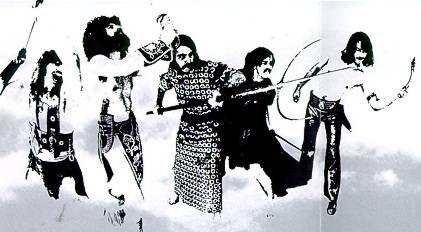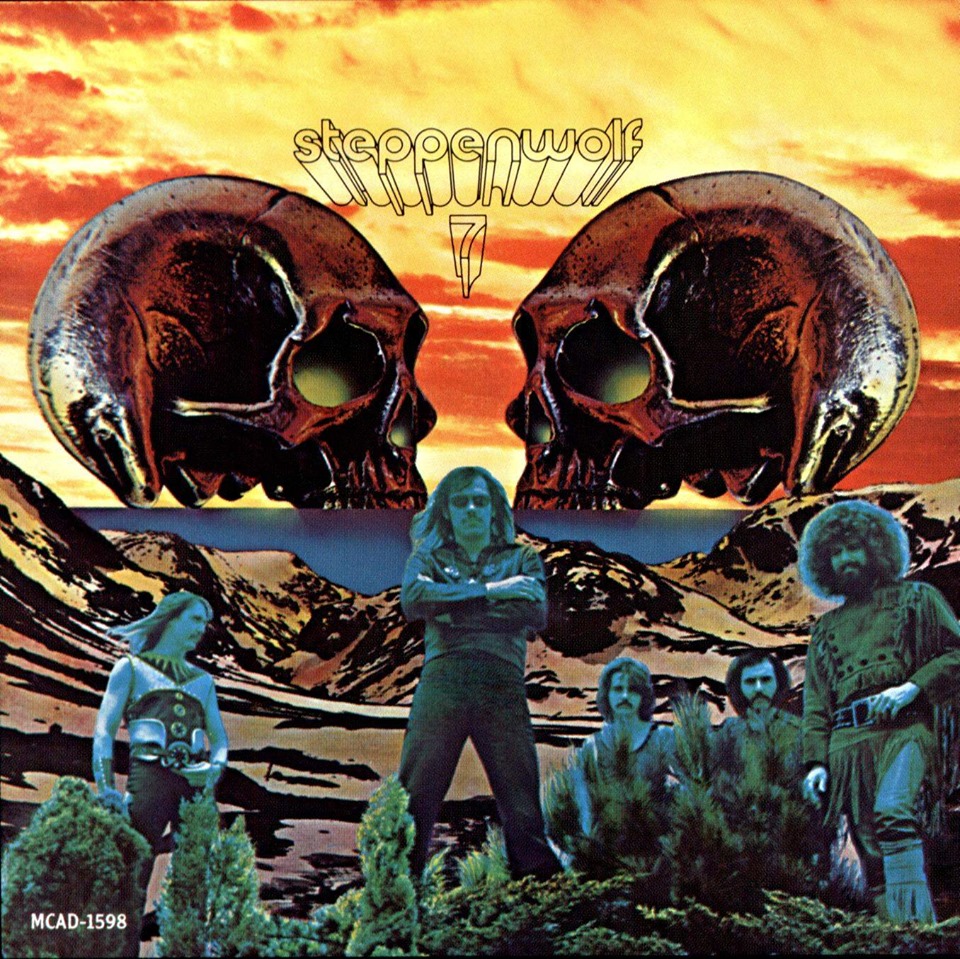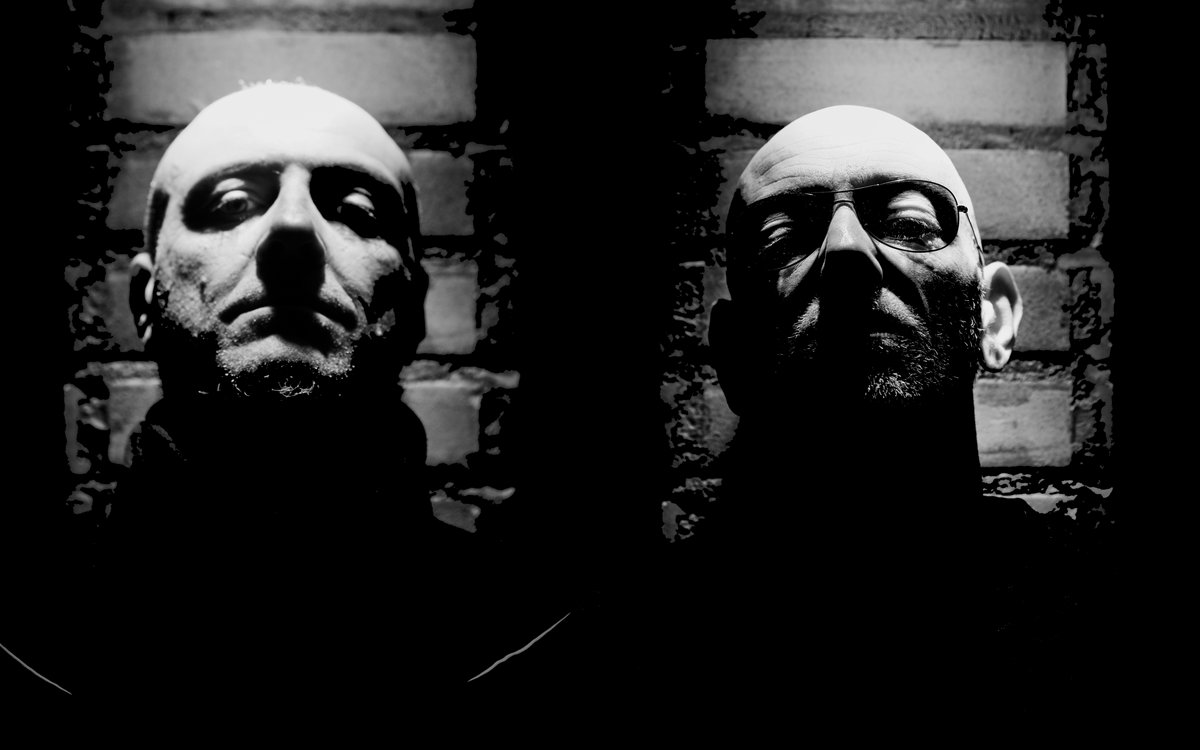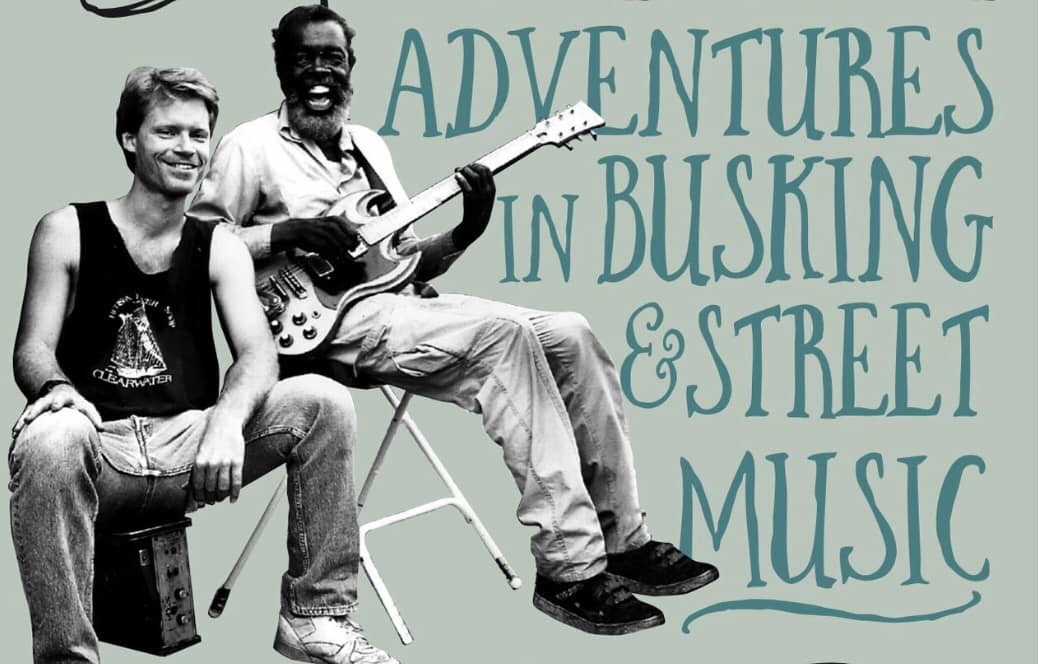The Steppenwolf Story – Chapter Seven
Only seven months after the release of their incredibly successful double album “Steppenwolf Live” the band once again hit record shops, in November 1970, with their seventh LP, the aptly titled “7.” During that period, the band had released a #62 hit single, the John Kay tune, “Screaming Night Hog” whose b-side “Spiritual Fantasy” was another Kay composition and dated all the way back to October 1968’s “Steppenwolf The Second.”
In addition, bassist/backing vocalist Nick St. Nicholas had been replaced by George Biondo, who had previously replaced St. Nicholas in the Los Angeles are band T.I.M.E. (Trust In Men Everywhere) the same band that Larry Byrom, lead guitarist on Steppenwolf’s seventh long player, their fifth from the studio, had come from. “7” was a success commercially, reaching #19 on the Billboard charts, and #14 on the Canadian charts, achieving gold record status in the US. Two singles were lifted, “Who Needs Ya” and a cover of Hoyt Axton’s “Snowblind Friend,” “7” differed from previous Steppenwolf releases in that lead guitarist Larry Byrom received more writing credits than any other member, being involved in seven of the album’s nine tracks, John Kay being credited on six tracks, with one of the LP’s tracks, the instrumental, “Earschplittenloudenboomer” being credited to their entire band. Furthermore, the biting social commentary of the group’s previous studio effort “Monster” was, for the most part, gone, replaced by more traditional hard rock tunes. However, two tracks “Foggy Mountain Breakdown” and “Hippo Stomp” were rather mellow in nature, giving listeners a hint as to the vibe found on Kay’s two post-Steppenwolf ABC/Dunhill albums, “Forgotten Songs & Unsung Heroes” (1972) and “My Sportin’ Life” (1973).
The album’s opening track “Ball Crusher” is reminiscent of then chart topping Cajun rockers, Creedence Clearwater Revival and Tony Joe White of “Polk Salad Annie” fame. The song, like most by the band, is dominated by guitarist Larry Byrom and keyboard player Goldy McJohn. In this case, Byrom’s lead work is dominated by his use of a wah wah pedal and restrained feedback. McJohn’s Hammond organ swirls through Leslie cabinets, which when combined with the steady, locked in rhythm section of Jerry Edmonton on drums and Biondo on bass, add up to an incredibly consistent instrumental performance. The first of two cover tunes on “7,” Bernie Roth’s “Forty Days And Forty Nights” is a return to the band’s blues roots. As usual, Byrom and McJohn carry the song instrumentally, but Kay’s mouth harp seals the deal. Reminiscent of a Chess classic a la Muddy Waters or Howliin’ Wolf, the band locks into a relaxed groove, with Edmonton’s drums driving the beat. All in all the song is a rather traditional blues performance, and fits quite nicely in the group’s catalog. “Fat Jack” is a rocker introduced by swirling guitar and organ courtesy of Byrom and McJohn, and features vocals by bassist George Biondo. A feel good tune, Byrom’s lead line and soaring solo along with Kay’s mouth harp dominate the sound, with gorgeous vocal harmonies giving texture to the tune. One of two highlights of “7” at least to this reviewer, is the six minute plus John Kay/Larry Byrom penned “Renegade” which is Kay’s autobiographical tale of escaping East Germany, with his mother, at a very young age, his father having perished just a month before his birth, while fighting in Russia. Instrumentally dominated by McJohn’s Hammond organ, Byrom’s guitar remains restrained throughout, as it is Kay’s lyrics that are on display. The song begins with Kay’s observation that “it’s a mighty long way out of the darkness to where the sun is free to shine” no doubt describing the escape from East Germany to Hanover, West Germany where Kay resided until making his way to Canada as a teenager. Kay’s words of warning, as passed to him by the guide are no doubt an accurate depiction of anyone attempting to escape East Germany, “hey you, keep your head down, don’t you look around, please don’t make a sound” followed by the even sterner, yet realistic “if they should find you now, the man would shoot you down.” Kay’s recollection of the situation reverberates in the listener’s ear with his reference to the guide, “and I can hear him now, whispering soft and low, when you get to the other side just run like hell!” Kay’s powerful lyrics are complemented by Byrom’s gentle solo which runs from the 2:45 mark until 5:15 into the song when Kay’s vocals return to once again drive the song’s theme home, and thus ends side one of “7.”

Side two opens with the relaxed “Foggy Mental Breakdown” a four minute, instrumentally dominated tune. Accessible and even somewhat commercial, the track features restrained performances by Byrom, McJohn, Biondo and Edmonton, with Kay’s harp solo giving the track sonic texture, aided by gorgeous vocal harmonies. The other highlight of “7” is the band’s cover of Hoyt Axton’s incredibly accurate depiction of cocaine addiction and the ability of the drug to steal the very soul of the user. There is nary a word wasted among Axton’s lyrics. The song’s opening laments a situation repeated thousands of times over, and all too real to Hoyt, the tune’s inspiration being the death of his band’s lead guitarist to a cocaine overdose. His words are absolutely haunting “you say it was this morning when you last saw your good friend, lyin’ on the pavement with a misery on his brain” followed by the source of the friend’s plight, “stoned on some new potion he found upon the wall of some ungodly bathroom in some ungodly hall.” Axton pulls no punches as he relays his words of futility, “he only had a dollar to live on ‘til next Monday, but he spent it on comfort for his mind, did you say you think he’s blind?” The insidiousness of the drug and its grip on the user have never been conveyed so accurately and poignantly as Axton posits, “he said he wanted heaven, but prayin’ was too slow, so he bought a one way ticket on an airline made of snow, did you say you saw your good friend flyin’ low?, flyin’ low, dyin’ slow.” The hopelessness of the situation, repeated time and time again, is brought to life so incredibly, “someone should call his parents, a sister or a brother,, and they’d come to take him back home on a bus, but he’ll always be a problem to his poor and puzzled mother, and he’ll always be another one of us,” Axton’s subtle way of letting the listener know that he is not writing from mere observance, but rather from first hand experience. “Snowblind Friend” peaked at #60 on the charts in 1971 when released as a single, its b-side, Hippo Stomp” another track from “7.” The a-side of the album’s first single, is the three minute rocker “Who Needs Ya” with its heavy guitar intro by Byrom, who revs the tune up, Biondo and Edmonton settling into a heavy groove. Featuring gorgeous vocal harmonies, this is Steppenwolf at their rocking best.

A great mixture of accessible rock with a commercial hook, and piano added by McJohn to add to its appeal, how the single stalled at #54 on the tracks is a mystery to me. All the elements are there, so it apparently shows the fickle nature of record buyers. The single’s b-side is an edit of “Earschplittenloudenboomer” a five minute track that follows on the LP. The song, despite its title, features acoustic guitar, piano, and a restrained bottom end from Biondo and Edmonton. A gorgeous instrumental that displays the softer side of Steppenwolf, Edmonton adds some tasteful percussion and the tune even includes a horn section, a real rarity in the band’s catalog. “7” closes with another rather gentle, feel good rocker, the Kay/Byrom composition “Hippo Stomp.” The tune features a fine mouth harp performance by Kay and sets the stage for the tone of the band’s eighth and final ABC/Dunhill LP “For Ladies Only” although the subject matter of that album differs rather drastically, but that is the subject for the eighth and final chapter of The Steppenwolf Story which will appear on these pages soon.
Steppenwolf “7” (1970)
– Kevin Rathert
All photo materials are copyrighted by their respective copyright owners, and are subject to use for INFORMATIONAL PURPOSES ONLY!




Excellent review, Steppenwolfs last great album, as far as I am concerned.
Thank you for the kind words Tom. I like "For Ladies Only" as well, but a lot of people agree with you that "7" was their last great album. I enjoyed writing the review greatly, glad you enjoyed reading it.
Through "7" you've nailed it. Keep up the good work
Wow Jobe, what a huge compliment. I hope "For Ladies Only" pleases you as much. Your words are greatly appreciated.
Nice to read a positive review of an album that has been ceremoniously panned by snobby elite critics since it’s 1970 release
This and the Second are my two favourites. Nice job capturing it for me!
I wasn’t really expecting to find anything on the WWW about Steppenwolf. “7” is one my faves. I’m 65 years old this September, and I saw Steppenwolf live in concert sometime in the early 70’s, I think. It’s all a bit hazy now after so many years, but they put on a fantastic show.
I’m a percussionist, and was intrigued by (the late) Jerry Edmonton’s drum intro on Magic Carpet Ride. I was thrilled to finally nail his syncopation, and I can still play it today. I love Steppenwolf 7, John Kay, and the great musicians in that band and all others.
Thank you for allowing a method of expressing my admiration to Steppenwolf and all other bands. –pcsteve
Yes, Steppenwolf 7 is their best. Even the LP cover rocks. I have been listening to 7 since I first heard Steppenwolf in grade school. Seen them 8 or so times, met John Kay & Goldy, Signed my LPs and I have every record. Most with unopened duplicates as well.
I like their first, Second, Birthday Party, Slow Flux right through to Rise & Shine. However, the organ, singing & no bullshit Heavy sound of Steppenwolf “7” can’t be beat. They need to be in the Rock & Roll Hall Of Fame. (Too many new shitty bands in there now)
I own a Test Pressing of 7! Signed by John, Larry, Goldy.